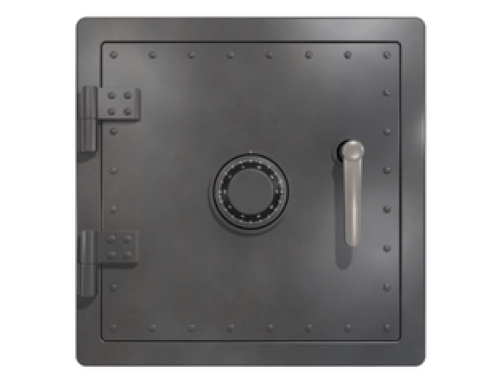Getting Your Financial House in Order after a Utah Divorce: Insurance
Finances are difficult during divorce.
People usually don’t have a good handle on their finances at the beginning of a divorce because they’ve been dealing with other things, like trying to keep their family together.
If divorce does anything, however, it makes you take a long look at your finances. You have to figure out every dime of spending and income in order to make things work after the divorce is final.
Because you’re reworking your finances from top to bottom, divorce is a good time to get your financial house in order.
Over a series of posts, I’ve tried to help people do just that. We’ve talked repeatedly about monthly budgeting and paying off debt.
Today, I want to talk about insurance. Specifically, the types of insurance every person should have after a divorce.
Type of Insurances You Should Have
Before I delve in to the types of insurances everyone should have after a divorce, let me address the money issue.
Many of you may say, “I just got divorced, I don’t have money for insurance.”
Look, money is very tight after divorce and you can’t waste any of it. Insurance is necessary, though, because you don’t have another person to take up the slack if something goes wrong with you. You have to have another source to take care of things, and that other source is insurance.
Cut back on other expenditures and make insurance a priority.
Here are the types of insurances every divorced person should have:
- Life insurance.
Yes, life insurance. If, heaven forbid, you were to pass away tragically, your kids need to be taken care of, and life insurance is one way to do that.
You may say, “My kids will go live with my ex if I pass.” That may be true, but that doesn’t remove the fact they won’t have your income to support them anymore. Give this one last gift to them.
You should have about 10x your yearly income in life insurance. So, if you make $35,000 per year, you should have $350,000 to $400,000 in life insurance.
Buy only term life insurance (twenty-year term). It’s the least expensive and easiest way to go. You’ll be amazed just how affordable it is once you start researching prices.
- Health insurance.
After insuring your life, insure your health.
If your work has health insurance, get it there. That’s usually the cheapest way to go.
If your work doesn’t offer health insurance, you’ll need to buy it on the market. Get the most affordable plan that works best for you and your kids.
(Note: if your ex was ordered to provide insurance for the kids, you may not need to get them insurance. This will probably decrease overall costs, which is good.)
- Long-term disability insurance.
Long-term disability insurance is not one people think about often.
Essentially, if you’re injured for more than say sixty or ninety days, disability insurance kicks in and pays a percentage of the income you would have made if you hadn’t been injured.
Long-term disability insurance pays better than government programs, and it’s worth every penny.
- Homeowner’s or renter’s insurance.
You want to be sure that if something catastrophic happens to your home, it will be replaced. Not only that, you want to make sure you’ll be reimbursed for the stuff inside as well.
This is what homeowner’s insurance does.
And it’s not very expensive, so get it.
Renter’s insurance doesn’t insure where you’re living, but it does insure your stuff inside the place you’re renting.
It’s even cheaper, so get it.
- Auto insurance.
For the love of heaven, if you drive a car, get car insurance.
If you want a mess on your hands, don’t get it.
If you get in an accident, you will be personally liable for 100% of damages, and the state will force you to buy extraordinarily expensive insurance for years after the accident.
- Identity theft insurance.
Identity theft is a big thing in America.
If you have your identity stolen, it can take months and hundreds of hours of working with banks and credit card companies to clear things up.
Cleaning up the mess left in the wake of identity theft is a huge hassle, it’s stressful, and it’s not something a newly divorced parent wants to deal with.
So, don’t.
Identity theft insurance buys you a company who will do all the leg work on cleaning up the mess. They talk to the banks and credit cards. They do all of that stuff so you don’t have to.
Identity theft insurance is cheap, about $145 per year for a family. It’s a no-brainer.
(Note: good identity theft insurance is tough to find. My family and I use Zander Insurance Identity Theft Protection. It’s great comprehensive insurance.)
Other Insurances to Consider
The six insurances above are those I believe every divorced person should have, but there are more insurance products than you can shake a stick at.
Not all of them are necessary or even good.
If you have the means, I would consider a couple additional, but not necessary, insurances:
- Umbrella policy.
An umbrella policy is an additional layer of insurance that covers you if your other insurances don’t.
For example, you get in a car wreck and injure another person. You don’t have enough car insurance to cover the cost of that person’s medical injuries. Usually, that person would come after your personal assets for the difference.
If you have a good umbrella policy, it would kick in and pay the otherwise uncovered medical injuries.
An umbrella policy is all about asset protection. So, if you have good assets, it’s definitely something you should have.
- Long-term care insurance.
If you’re over sixty, you should really consider long-term care insurance.
The chances of using this insurance before sixty are almost zero. After sixty, the chances go way up.
This is another big asset protection insurance.
You don’t want to have to sell your home to pay for assisted living. You want to keep that asset and pass it on to your kids and grandkids.
So, pick up long-term care insurance so you don’t have to sell your home if something happens to you.
Call Brown Family Law
If you find yourself facing a divorce, please call 801.685.9999 for a legal in-person consultation, or use our online scheduling tool.





